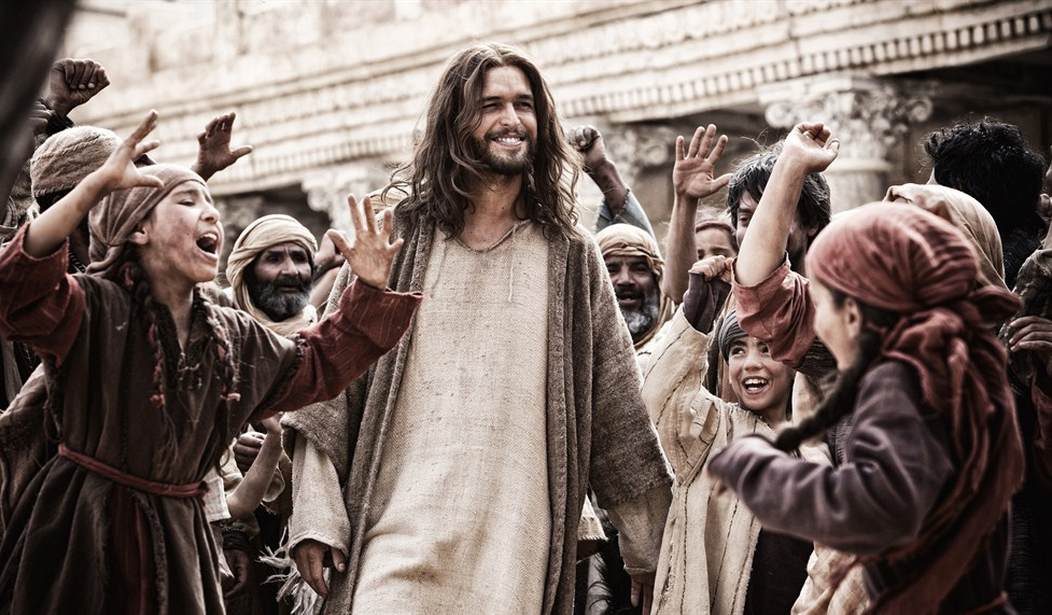Author’s Note: Interested readers can find all previous volumes of this series here.
Today we study Jesus’s most famous and dramatic miracle that triggered a series of events leading to his Crucifixion and Resurrection.
The miracle — found only in the Gospel of John — chronicles the two reasons why Jesus raised Lazarus from the dead and is shown below in bold.
First, Jesus hears the news about his close friend: “Lord, the one you love is sick.” Jesus responds: “This sickness will not end in death. No, it is for God’s glory so that God’s Son may be glorified through it” (John 11:1-4).
The second reason is what Jesus wants you to know after he performs the miracle: “so that you may believe.”
According to Scripture, here are the events orchestrated by Jesus for God’s glory and belief in Him a few weeks before His death and Resurrection.
After Jesus receives word about Lazarus’s condition, he surprises his disciples by not leaving immediately for Bethany. Instead, Jesus waits two days and then tells them: “Lazarus is dead, and for your sake I am glad I was not there, so that you may believe. But let us go to him” (John 11:14-15).
By the time Jesus arrives in Bethany, Lazarus has been dead in his tomb for four days. Lazarus’ sister Martha, a close friend of Jesus, is first to greet him. The exchange between Martha and Jesus ranks high on the Gospel’s list of most truthful, significant, and revealing conversations:
"'Lord,' Martha said to Jesus, 'if you had been here, my brother would not have died. But I know that even now God will give you whatever you ask.'
"Jesus said to her, 'Your brother will rise again.'
"Martha answered, 'I know he will rise again in the resurrection at the last day.'
"Jesus said to her, 'I am the resurrection and the life. The one who believes in me will live, even though they die; and whoever lives by believing in me will never die. Do you believe this?'
Recommended
"'Yes, Lord,' she replied, 'I believe that you are the Messiah, the Son of God, who is to come into the world'" (John 11:20-27).
Stop right there. Fast forward to a passage near the end of John’s Gospel subtitled, “The Purpose of John’s Gospel.” What John wrote there mirrors what Martha told Jesus about His identity: "But these are written [miracles performed by Jesus] that you may believe that Jesus is the Messiah, the Son of God, and that by believing you may have life in his name" (John 20:30-31).
Let’s continue the story with Lazarus lying in his tomb.
Jesus greets Martha’s sister, Mary: "She fell at his feet and said, 'Lord, if you had been here, my brother would not have died.'" Many villagers were weeping, and: "Jesus wept. Then the Jews said, 'See how he loved him!' But some of them said, 'Could not he who opened the eyes of the blind man have kept this man from dying?'" (John 11:35-37). Bethany villagers were a tough crowd to please, and naysayers spoke too soon.
Then Jesus asks for the stone to be removed from Lazarus’s tomb. Martha warns that after four days, “he stinketh” — as colorfully described in the King James Bible.
But Jesus is undeterred, saying to Martha, “Did I not tell you that if you believe, you will see the glory of God?” (John 11:40). (Notice that again Jesus states the first reason for the miracle followed below by the second):
"So they took away the stone. Then Jesus looked up and said, 'Father, I thank you that you have heard me. I knew that you always hear me, but I said this for the benefit of the people standing here, that they may believe that you sent me'" (John 11:41-42).
Now, the climatic ending: "Jesus called in a loud voice, 'Lazarus, come out!' The dead man came out, his hands and feet wrapped with strips of linen, and a cloth around his face. Jesus said to them, 'Take off the grave clothes and let him go'" (John 11:43-44).
As expected, Jesus raising Lazarus from the dead was the talk of the town. However, when the news reached the Jewish rulers in Jerusalem, they were unnerved for a good reason: "Many of the Jews who had come to visit Mary, and had seen what Jesus did, believed in him" (John 11:45).
Hence, the rulers did what politicians always do — meet and scheme to solve a problem that threatens their power:
"Then the chief priests and the Pharisees called a meeting of the Sanhedrin. 'What are we accomplishing?' they asked. 'Here is this man performing many signs. If we let him go on like this, everyone will believe in him, and then the Romans will come and take away both our temple and our nation'" (John 11:47-48).
After the miracle, as Jesus attracts growing crowds, the ruler’s crisis of political self-preservation intensifies. Even newly resurrected Lazarus is targeted for death: "So the chief priests made plans to kill Lazarus as well, for on account of him many of the Jews were going over to Jesus and believing in him" (John 12: 9-10).
The next day, the chief priests and Pharisees are alarmed to hear that Jesus is heading to Jerusalem for the Passover Feast. His joyous entry was later named Palm Sunday.
Five days later, Jesus dies on the cross between two criminals — crisis over — political problem solved. (Spoiler alert: Miracle ending and a new beginning.)
Join us next week as we continue studying Scripture leading to Resurrection Sunday.
Thanks for reading this far. I pray that your interest has been piqued, and with a new appreciation you will read all the verses of this monumental story.
Jesus closes our study repeating his teaching to Martha and asking YOU a question:
“I am the resurrection and the life. The one who believes in me will live, even though they die; and whoever lives by believing in me will never die. Do you believe this?”
Myra Kahn Adams is a media producer and conservative political and religious writer with numerous national credits. She is also Executive Director of www.SignFromGod.org, a ministry dedicated to educating people about the Shroud of Turin. Contact: MyraAdams01@gmail.com or Twitter @MyraKAdams.

























Join the conversation as a VIP Member